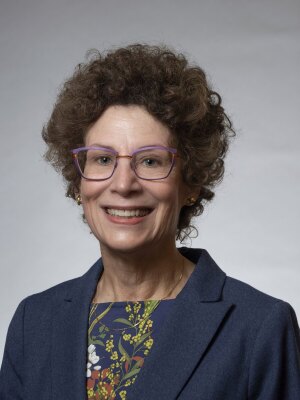por
Gus Iversen, Editor in Chief | October 10, 2022
From the October 2022 issue of HealthCare Business News magazine
With the annual ASTRO meeting fast approaching, HealthCare Business News sat down with the organization’s president, Dr. Geraldine Jacobson, to learn more about her background in radiation oncology. We also discussed the upcoming meeting, and what attendees can expect when they arrive at the Harry B. Gonzalez Convention Center in San Antonio.
HCB News: Who or what inspired you to follow a career in healthcare?
Dr. Geraldine Jacobson: After college, I travelled around the world and was working overseas when I decided I needed to select a profession. I came up with three criteria: my capacity to pursue the career (this excluded ballet and space travel), potential career satisfaction, and the social value of the profession.
After a visit with a female doctor, I realized that medicine was a career possibility. I had never met a female doctor before, and this experience has convinced me of the importance of diverse role models.
HCB News: Why did you choose oncology/radiation oncology?
GJ: During my clinical rotations, I found working with oncology patients especially satisfying. One day, a radiation oncology resident introduced herself to me after a tumor board. When she explained the field and how she worked with patients, I knew the specialty was a fit for me.
During my pre-med coursework, I found that I enjoyed calculus and physics. They were elegant and logical; if you followed the right process, you got the right answer. When I learned about radiation oncology — an oncology field that included physics — I was interested immediately.
HCB News: How did your career path lead you to where you are today?
GJ: My career path has been varied and has given me opportunities to practice radiation oncology in diverse settings.
My early mentors were excellent role models in their commitment to patient care and engagement in clinical trials. During my training I also had opportunities to do a rotation at Princess Margaret Hospital in Toronto and to visit radiation oncology centers in China. These experiences were the beginning of my lifelong interest in global oncology.
Since residency, I have worked in a variety of practice types, including academic medical centers and private practice, as well as in rural clinics.
I spent nine years at the University of Iowa, eventually becoming associate chair. I then took a position as founding chair at West Virginia University to build a new radiation oncology department. This experience provided me with deeper insight into the challenges of rural practice for both patients and providers. A top priority for my time as ASTRO Board Chair is to promote the specialty of radiation oncology for all practice settings, so that we can meet patients where they are.
